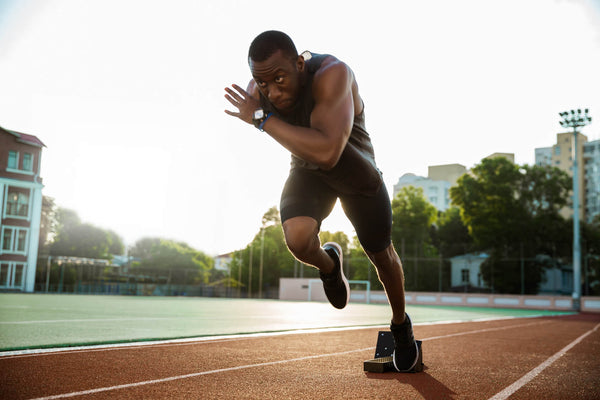Athletes always seek new ways to boost sporting performance. While steroids and other pills may be tempting options, there is a vital nutrient that often goes unnoticed - iron.
Iron has numerous athletic benefits, including boosting endurance and strengthening the immune system, making it the unsung hero of athletic performance. But despite its importance, it's not always top of mind for many athletes. As very few sportspeople know of its benefits.
In this Chewwies article, we'll explore the vital role that iron plays in athletic performance, giving you insights on how you can take your performance to the next level in a very healthy and natural way.
Why is iron important for sports?
Iron is crucial for sports for several reasons. Some of them are;
Oxygen transport
During exercise, muscles require more oxygen to produce energy, and the body responds by increasing the production of red blood cells. Adequate iron intake is necessary to support the production of new red blood cells and maintain sufficient haemoglobin levels.
Without enough iron, the body can't produce enough haemoglobin to transport oxygen efficiently. This shortage can lead to decreased oxygen delivery to the muscles, which results in symptoms like fatigue, weakness, shortness of breath, and other effects of iron deficiency.
All of these are bad for an athlete as it reduces their performance.

Unfavourable effects of the deficiency
A famous iron deficiency, anaemia comes with fatigue, weakness and shortness of breath. These are red flags in sports as such symptoms make it impossible for sportsmen or women to bring on their A-game.
Production of myoglobin
Iron is crucial in producing myoglobin, the protein that stores oxygen in muscle tissue. Myoglobin is the reason for the energy pump you experience during sports. It helps the muscles produce energy during exercise, particularly for endurance athletes.
Immune system function
During intense physical activity such as sports, the body's demand for oxygen and nutrients increases, and so does the need for iron. Iron is also needed for cognitive functions, which is key to any athletic performance!
If an athlete does not have adequate iron stores, it can lead to anaemia, which weakens the immune system and increases the risk of infections.
This can reduce sports performance, as the athlete may be fatigued and unable to perform at their best. To avoid this, you can take vitamin D supplements alongside iron supplements. This combo boosts your immune system levels.
How much iron do athletes need?
Athletes, especially endurance athletes, require more than the average person. The exact amount of iron needed depends on several factors, including age, sex, and training intensity.
Male athletes need around 8 mg of iron daily, while female athletes require 18 mg daily. The increment seen is due to iron losses during menstruation. Vegetarian and vegan athletes need higher iron intakes!
Since a bulk of their iron is from plant sources, which is less readily absorbed by the body than iron from animal sources.
What are the best sources of iron for athletes?
The best sources of iron for athletes include;
- Fish
- Tofu
- Red meat
- Spinach
- Lentils
- Poultry
- Beans
Vitamin C-rich food also comes in handy for the easy absorption of heme iron. This is iron from plant sources and can not be absorbed by the body on its own. Hence vitamin C is needed.
You can also take supplements that combine iron and vitamin C for better effects.

Effect of iron shortage on Sportsmen
Here are some of the effects of iron deficiency in sports;
- Limited red blood cells
- Fatigue
- Weakness
- Shortness of breath
- Decreased immune function
- Rampant infections and illnesses
- Osteoporosis
- Cardiovascular disease
- Missed training
- General poor athletic performance
Iron deficiency is a grave issue for athletes and can significantly impact their performance and overall health. Thus, athletes ought to prioritise their iron intake to support their athletic endeavours.
Effects of excessive iron intake on Sports
While iron is essential for athletic performance, excess consumption of it brings adverse effects on the body. The most popular is a condition known as iron overload.
This overload can cause liver damage, joint pain, and an increased risk of diabetes and heart disease.
Of course, iron-rich meals and supplements are healthy, but balance is the key! It's also important to note that excessive iron intake can mask underlying health conditions.
An example is hemochromatosis, a genetic disorder that causes the body to absorb too much iron. Athletes who suspect they may have this condition should speak with their healthcare provider before taking any added medication.
Conclusion
Athletes ought to know the causes and symptoms of low irons.
As while, Iron may not be as flashy as other sports supplements, it is a vital mineral for athletic performance. It powers your muscles with oxygen, boosts your endurance, and strengthens your immune system.
So as a serious athlete, you don't want to overlook the power of iron. It might just be the missing piece to be at your best and smash those goals!


